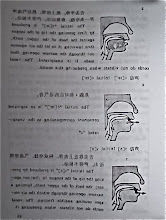Beginnings imply endings. And endings imply beginnings. So it goes for the the month of January.
The month is named after one of my favorite gods, a god most humanly and metaphysically figured: Janus, whom the Romans worshipped as the "god of door and gate," according to the Oxford Classical Dictionary. The origin of his name attests directly to his divine sovereignty. Janus derives from the Latin ianua, meaning "door," "doorway," or "entrance," and is closely related to ianūs, "covered passage" or "arcade." There is speculation that these two words, in turn, come from *ei-, a most basic of Proto-Indo-European bases signifying "to go." This base also explains the Latin verb "to go," īre.
The usually bearded deity was believed to have twin heads, one facing forward and the other backward, and thus, like a door, looks both ways. (In some depictions, however, the god bears four heads, each facing in the four cardinal directions.) According to myth, Saturn endowed the god with the ability to see both past and present to reward his hospitality. Thusly, Janus was patron of beginnings, cosmic and terrestrial, as well as of human life, new eras, and new enterprises, which could account for his frequent mintage on coins. He was lord over all ranges of portals: first and foremost entrances to domiciles, bridges, arches, and covered passageways. Most famously, Janus watched over the Gates of War in the enclosed and gated archway in the Roman Forum, whose doors were only closed during the rare times of peace.

A clean-shaven Janus as featured on a Roman coin. Image thanks to vroma.org.
While there are gods in other cultures that resemble Janus, such as we see in certain Grecian depictions of Hermes and in Assyrian depictions of the man-fish-headed Oannes, historians assert that Janus has no immediate equivalent in other mythological systems, and thus was an old Italic deity, likely the Etruscan god known as Ani. (I should note, however, that Sir William Betham posited that Janus takes his name from a Mesopotamian name, Uanna, which, in turn, is a variant of the name of Biblical prophet Jonah, or Yonah, meaning "dove.") His ancientness may also explain Janus' high rank in the Roman pantheon, for his surname, divom deus, means "god of gods," which suggests a Jupiterian, or Jovanian, status.
Beginnings, then, are occasions of sanctity. And therefore so are endings. But perhaps also sacred is the ambiguity therein: as inception must in ways be defined by cessation, and as cessation must in ways be defined by inception, we must respect life's liminality, its thresholds. To be human is to be aware of past and future, and, perhaps more important, to know that our present is a constantly moving threshold between the two.
January, in light of such liminality, reminds me of a more epistemological poem I penned over two years ago, called "Winter Gardener," which anticipates, to boot, my upcoming and long overdue "Eclogue 7." Happy New Year, or, Happy Ending of Last Year.
Winter Gardener
No song from the birds.
The starling's course
across the field
carries the whiteness
and the stillness
of the snow.
Dusk. Or dawn.
The winter gardener knows.
John K., 12/10/07



